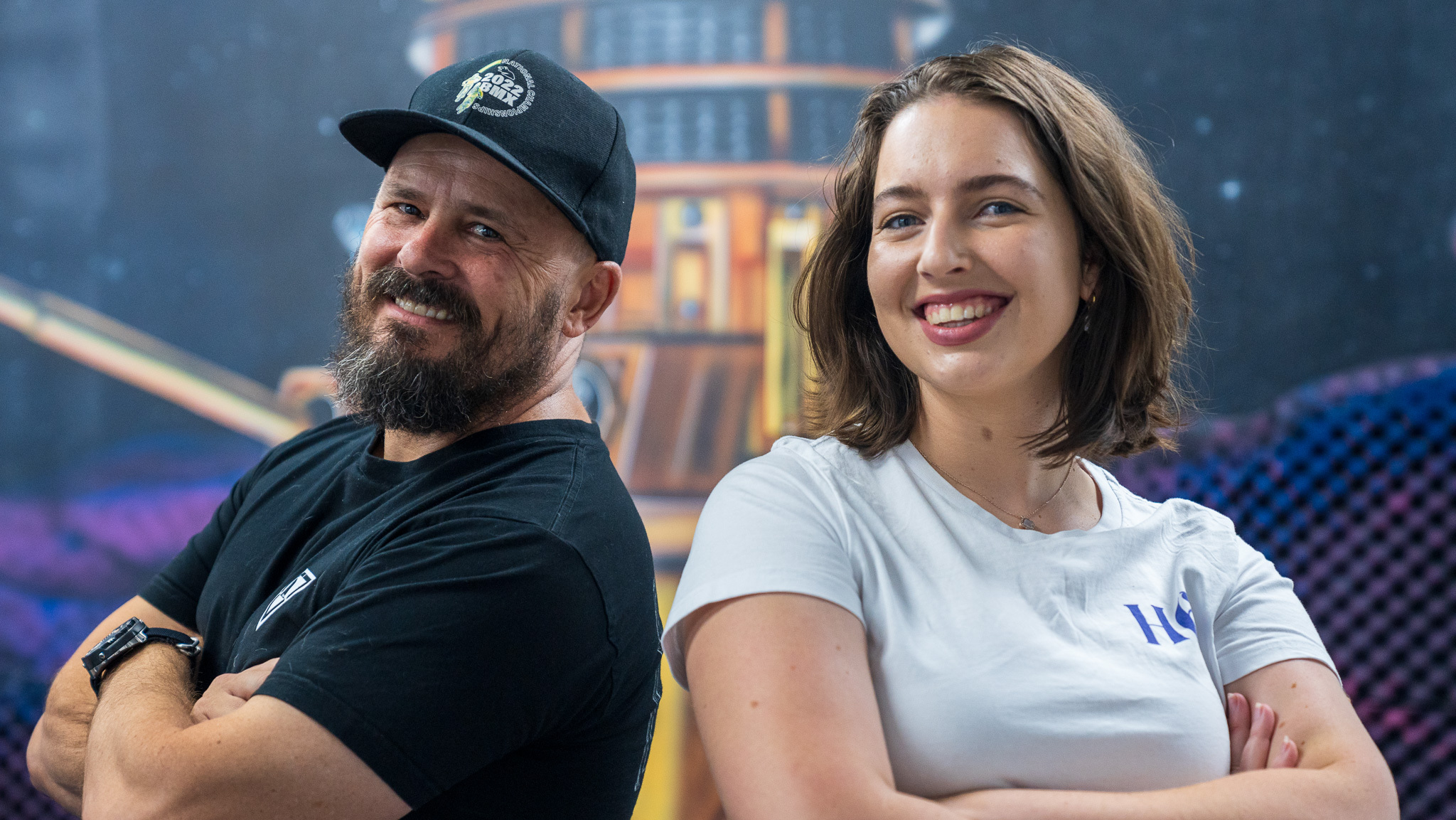HutSix is improving lives one app at a time
Posted June 19, 2023

Many people have absent friends, or those acquaintances who drop in and out of our lives.
But when Brad Bellette lost touch with a good friend who shared his love of BMX, he knew something was amiss.
Little did he know that coming to his friend’s aid would become a “pivotal moment” for Brad, and his ambitions to use technology to improve lives in Indigenous communities.
“My friend [Bradley] is an Aboriginal man who runs an Aboriginal construction company in Alice Springs, and we just never saw him,” explains Brad, Chief Executive Officer of tech firm HutSix, from the company’s new Lot Fourteen office.
“It turned out he was buried writing reports for government funding bodies – he was managing the maintenance for six town camps in Alice Springs and was giving up his weekends and giving up his life writing these reports, he was ready to walk off the job.”
The maintenance reports were crucial to Tangentyere Constructions maintaining funding, and for Bradley to keep his job.
As mates do, Brad helped Bradley create a cloud-based customer relationship management system that would track the jobs Tangentyere Constructions did, and allow them to share the information directly with the NT Department of Housing.
The software was built to Tangentyere Constructions bespoke needs, cutting the organisation’s reporting time from two weeks to 48 hours.
“That was the moment when the light-bulb [moment] happened and made me realise that we could create something big, and in the past five years we have done more and more work in this space,” he says.
Today HutSix, its name derived from the location of the breaking of the Enigma code in World War II, is delivering technological innovation to tackle social equity disparity in regional and remote Australia.
Established in Alice Springs in 2012, the company has 11 staff nationally – four in Adelaide – and established its Lot Fourteen HQ in 2021 in the Marnirni-apinthi building, before moving to its current home in the TechCentral building in 2022.
HutSix’s tech is truly changing lives.
Innovations include an app to streamline applications for payment of mining royalty payments to traditional owners in Queensland’s Western Cape, who are eligible for the money under an Indigenous Land Use Agreement.
“We found out that people couldn’t access the money,” Brad says. “Nobody was applying, and the reason nobody was applying was that every time you had to prove your identity, these were massive roadblocks.
“And the other issue is they couldn’t find enough staff to process the claims, so it was getting worse – there were sheds full of paper applications, so we thought: why don’t we develop something that can be used by people on their phone.”
HutSix’s Royalties Distribution App validates identities through social media, and empowers shareholders on the ground.
The app also builds out a family tree of related shareholders, further streamlining application and verification processes.
The technology also means only one auditor is needed to process claims; further accelerating release of funds, with the app, administered through the West Cape Communities Co-Existence Agreement, distributing over $100,000 a month to recipients since its 2017 implementation.
HutSix Chief Operating Officer, Erika Hamilton, says the app has the potential to improve lives for future generations on Cape York, and close the gap for Indigenous children.
“This system makes it easier for people to have funding for schools, for teachers, so children can finish Year 12,” she says. “They can now get funding to improve infrastructure, or can pay for school support staff.”
“It’s releasing that money to do what it was supposed to do – benefit people who are entitled to it.”
HutSix also built an app for the Tiwi Islands Regional Council’s youth night patrols, streamlining report-writing tasks and administrative duties, meaning staff could be on the road more of the time helping their community.
Users can see real-time data entered by others, and the data can be accessed by other stakeholders such as truancy officers, who previously had to wait until the next morning each day for a photocopy of the previous night’s activity reports.
Women escaping domestic violence are also being supported by HutSix, which has created a CRM that is breaking down the barriers for at-risk and vulnerable women in the Northern Territory in accessing professional support.
The platform enables staff at the Katherine Women’s Information and Legal Service to deliver community legal education (CLE) to crisis service providers, alleviating the need for senior lawyers to do the work.
The system also integrates a feedback and follow-up system for CLE session participants, and has a discreet self-referral process for at-risk women.
“So, it eases the administrative burden for the organisation, but also makes it a lot easier for people to self-elect for outreach services,” Erika says.
Brad adds: “What these systems are doing is handing back control and that democracy to organisations.”
“And for the federal or state governments funding these organisations, they get more transparent governance. We like to think we are pretty unique in this space.”
Erika says a “guiding light of strong values and a core mission” dictates HutSix’s work.
“The culture in our team is that everyone is striving to make a difference,” she says. “And we need to make sure we do work that actually does that.”
Lot Fourteen, she says, aligns with the company’s vision to be at the forefront of ideas and innovation.
“It’s also about being around people who are willing to collaborate,” she says. “It’s really easy here, nobody is threatened by you, everyone wants to collaborate.”
Brad adds: “It just seemed like the right thing to do. From the moment I popped into the place, it just felt like the right place to be.”
Read more stories like this on Issue_01 of Lot Fourteen’s Boundless Magazine.
Great things come to those who subscribe
Subscribe
"*" indicates required fields
Adelaide 5000
Developed by Frame Creative
Design by The Sideways Theory
Design by Sixth Street Design
Developed by Frame Creative
© Lot Fourteen All Rights Reserved

